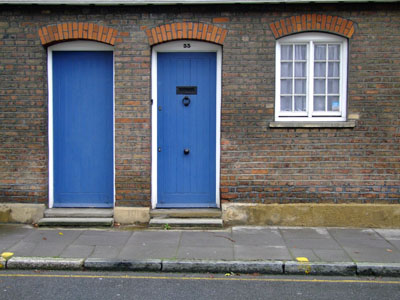What You Need to Know:
• Between 1837 (when civil registration of births began) and 1875, it was not uncommon for parents to not register the birth of their children for a variety of reasons. Some estimates suggest that 10 to 20% of births during this period were not registered. Thus, the absence of a birth certificate in England and Wales between 1837 and 1875 does not provide proof that a person did not exist.

• People were fined after 1875 for not registering a birth. Thus, after this date virtually 100% of births were registered. However, parents were still required to register births within six weeks or face heavy fines. Tardy parents sometimes falsified the date of birth to avoid paying these fines. This is one reason why the date of birth on birth certificates can vary from the date of birth on later certificates such as marriage certificates.
• When tracing your ancestors, do not assume that all the children in a family had the same mother. Many women died during childbearing and fathers were often forced to quickly remarry to help raise the children.
• Many children died young. We have seen estimates that suggest that up to half the children born in London during this period died before the age of three. Many genealogists do not bother to record the names of children who died at an early age. We think you should remember these ancestors. After all, if you don't remember them, then who will? There is also a very practical reason why you should carefully record all children in a family, even those who died young. In England during this period there was a reasonably standard naming convention that parents used for their children. The first male was named after the father's father. The second male was named after the mother's father. The third male was named after the father. Conversely, the first female was named after the mother's mother. The second female was named after the father's mother and the third female was named after the mother.
• Knowing the naming convention in a family (most families had some kind of naming convention) can provide valuable clues to genealogists. For example, if your ancestors used the standard naming convention described above then you already know the first names of all the grandparents. Be careful, however, since names were recycled if one of the children died. Although this can also provide you with valuable clues, it gets very confusing if you see the same name appearing more than once in a single household.
• One interesting quirk of English common law is that it views a name as simply a label by which a person is generally known. Thus, historically a person could change their name with little or no legal requirements. That means your ancestor could have changed their name without any formal paperwork or advertisement. Some people, however, did advertise name changes in the London Gazette (and, in fact, it was required during World War II). [London Gazette] The London Gazette (as well as many other English genealogy records) can also be searched with the free Genealogy Search Engine.
What You Need to Know:
• Prior to 1880, children did not legally have to attend school. Up until this date, the only formal education many children received was Sunday school, which often taught fundamental reading and writing as well as religion. Sunday schools of the day were often very large affairs, much larger than today. It was not uncommon to have hundreds of children in attendance at the larger churches in London.

